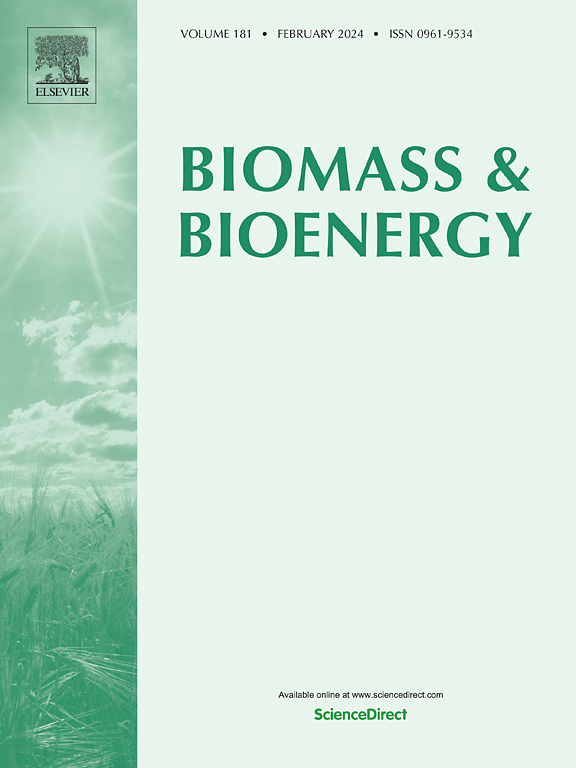Valorization of waste cooking oil: Emerging strategies for bio-based product development
IF 5.8
2区 生物学
Q1 AGRICULTURAL ENGINEERING
引用次数: 0
Abstract
Edible vegetable oil used in the frying process is the main cause of waste cooking oil (WCO). WCO is mainly produced and released into the environment, becoming a significant environmental pollutant. Improper management of large quantities of WCO is giving rise to many adverse environmental issues such as disruptions in sewage pre-treatment at wastewater treatment facilities, blockages in sewage systems, and the risk of water and soil contamination when WCO is deposited in municipal solid waste landfills. In this review, we explore the ongoing biotechnological transformation, composition, and properties of WCO, also examine the use of WCO as a raw material for various purposes, including as a source of energy, for the production of value-added products, grease preparation, animal feed, soap formation, and asphalt rejuvenation. These applications ensure the effective utilization of WCO as a valuable resource for both household goods and industrially important products.

废弃食用油的增值:生物基产品开发的新兴战略
在煎炸过程中使用的食用植物油是产生废油的主要原因。WCO主要产生并释放到环境中,成为一种重要的环境污染物。对大量世界海关组织的不当管理正在引起许多不利的环境问题,例如废水处理设施的污水预处理中断、污水系统堵塞,以及当世界海关组织沉积在城市固体废物填埋场时可能造成水和土壤污染。在这篇综述中,我们探讨了正在进行的生物技术转化、WCO的组成和特性,并研究了WCO作为各种用途的原料的使用,包括作为能源的来源,用于生产增值产品、油脂制备、动物饲料、肥皂形成和沥青再生。这些应用确保有效利用世界海关组织作为家庭用品和重要工业产品的宝贵资源。
本文章由计算机程序翻译,如有差异,请以英文原文为准。
求助全文
约1分钟内获得全文
求助全文
来源期刊

Biomass & Bioenergy
工程技术-能源与燃料
CiteScore
11.50
自引率
3.30%
发文量
258
审稿时长
60 days
期刊介绍:
Biomass & Bioenergy is an international journal publishing original research papers and short communications, review articles and case studies on biological resources, chemical and biological processes, and biomass products for new renewable sources of energy and materials.
The scope of the journal extends to the environmental, management and economic aspects of biomass and bioenergy.
Key areas covered by the journal:
• Biomass: sources, energy crop production processes, genetic improvements, composition. Please note that research on these biomass subjects must be linked directly to bioenergy generation.
• Biological Residues: residues/rests from agricultural production, forestry and plantations (palm, sugar etc), processing industries, and municipal sources (MSW). Papers on the use of biomass residues through innovative processes/technological novelty and/or consideration of feedstock/system sustainability (or unsustainability) are welcomed. However waste treatment processes and pollution control or mitigation which are only tangentially related to bioenergy are not in the scope of the journal, as they are more suited to publications in the environmental arena. Papers that describe conventional waste streams (ie well described in existing literature) that do not empirically address ''new'' added value from the process are not suitable for submission to the journal.
• Bioenergy Processes: fermentations, thermochemical conversions, liquid and gaseous fuels, and petrochemical substitutes
• Bioenergy Utilization: direct combustion, gasification, electricity production, chemical processes, and by-product remediation
• Biomass and the Environment: carbon cycle, the net energy efficiency of bioenergy systems, assessment of sustainability, and biodiversity issues.
 求助内容:
求助内容: 应助结果提醒方式:
应助结果提醒方式:


